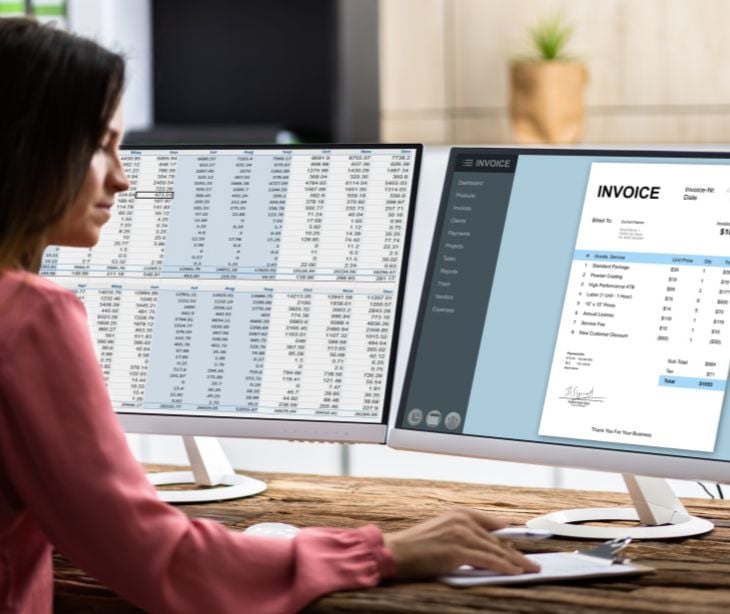
HIPAA compliant accounting software is specially designed to handle sensitive patient information with care, reducing the risk of non-compliance, data breaches, and potential legal repercussions. By using HIPAA compliant accounting software, healthcare organizations can streamline their financial processes and maintain the confidentiality of patient data.
HIPAA compliance and HIPAA compliant software
Covered entities frequently rely on software like The Guard as a framework to achieve and maintain HIPAA compliance. This HIPAA compliance software can assist in various functions, including security risk assessments or ensuring overall compliance assurance. The software does not need to be inherently compliant unless it handles protected health information (PHI) controlled by the organization.
On the other hand, HIPAA compliant software, like HIPAA compliant email, is specifically designed with the security and privacy safeguards outlined by HIPAA. This may include features such as secure email encryption solutions for sharing PHI, such as Paubox and TherapyNotes, or secure storage services, such as Google Cloud Drive. By utilizing this software, covered entities can enhance their ability to safeguard PHI and comply with HIPAA requirements.
Differentiating between these two phrases enables organizations to accurately choose the appropriate software service for their needs.
See also: Can software be partially HIPAA compliant?
HIPAA compliance in accounting software
HIPAA compliant accounting software is a specialized financial management tool tailored for the healthcare sector. Its primary purpose is to assist healthcare organizations in managing their financial data while ensuring compliance with HIPAA.
This specialized software not only helps healthcare organizations maintain the confidentiality of patient records but also ensures that financial operations related to patient care, insurance claims, billing, and reimbursements are handled in a manner that complies with HIPAA standards. Using HIPAA compliant accounting software allows healthcare organizations to maintain a comprehensive data security and regulatory compliance approach.
Features to look for in HIPAA compliant accounting software
- Encryption: The software should provide encryption measures to protect sensitive financial data and patient information from unauthorized access.
- Audit trail: Look for software offering comprehensive audit trail capabilities, allowing you to track and monitor all user activities and changes to financial and patient data.
- Customizable access controls: Ensure the software allows for customizable access controls, so you can restrict access to sensitive information based on user roles and responsibilities.
- Business Associate Agreement (BAA): Verify that the software vendor provides a Business Associate Agreement (BAA), guaranteeing their compliance with HIPAA standards and commitment to protecting patient data.
- Data security measures: Check for additional features such as firewalls, data encryption during transmission, and secure data storage protocols.
- Comprehensive reporting: Look for software with robust reporting and analytics capabilities, enabling you to generate financial reports while ensuring data security and compliance.
- User-friendly interface: An intuitive user interface simplifies the software's adoption and usage within your organization, reducing the risk of errors.
The benefits of using HIPAA compliant accounting software
- Enhanced security: HIPAA compliant accounting software offers robust security measures, such as encryption, access controls, and audit trails, protecting sensitive patient information and financial data.
- Compliance assurance: It helps healthcare organizations adhere to HIPAA regulations, reducing the risk of non-compliance, potential penalties, and legal issues.
- Patient confidentiality: The software maintains patient confidentiality by safeguarding patient data, bolstering trust and integrity in healthcare services.
- Efficient financial management: HIPAA compliant software streamlines financial processes, allowing organizations to manage their finances effectively while prioritizing data security.
Examples of HIPAA compliant accounting software
Cliniko
Cliniko is a comprehensive practice management solution tailored for healthcare organizations. Cliniko simplifies practice management with intuitive appointment scheduling, patient management, and accounting tools. It's HIPAA compliant and offers robust encryption and data security measures, as well as seamless integrations with other healthcare software to enhance patient care.
Sage Intacct
Sage Intacct is cloud-based financial management software designed for businesses, including healthcare organizations. It streamlines financial operations and maintains HIPAA compliance with its Advanced Audit Trail module, which tracks and audits access to sensitive financial data, including PHI. Sage Intacct is willing to sign a BAA with healthcare entities and offers data security features such as access control and restrictions on PHI storage.
Other HIPAA compliant software helathcare organizations can utilize
- HIPAA compliant data storage and cloud solutions: These solutions provide secure data storage and cloud services for healthcare organizations, safeguarding patient information while allowing for accessibility and scalability.
- HIPAA compliant email software: HIPAA compliant email software ensures secure communication within healthcare organizations, allowing the exchange of sensitive patient information while meeting HIPAA standards for email encryption and security.
- HIPAA compliant telehealth and telemedicine platforms: Telehealth and telemedicine platforms facilitate remote patient consultations, allowing healthcare practices to offer virtual care services while maintaining HIPAA-compliant patient data privacy.
- HIPAA compliant data backup and disaster recovery solutions: These solutions ensure that healthcare organizations have secure backups of patient data and can quickly recover information in case of emergencies or data loss, all in compliance with HIPAA regulations.
- HIPAA compliant secure messaging applications: Secure messaging apps enable healthcare professionals to communicate securely with colleagues and patients, ensuring that sensitive patient information is protected during exchanges.
Subscribe to Paubox Weekly
Every Friday we bring you the most important news from Paubox. Our aim is to make you smarter, faster.




